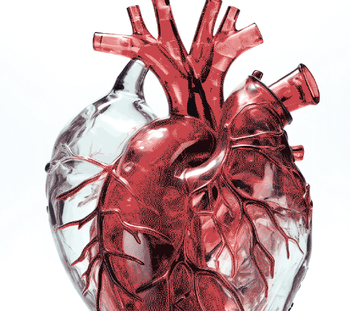
- May 2015
- Volume 2
- Issue 2
Researchers Are Working on a Promising Novel Herpes Vaccine
Albert Einstein College of Medicine researchers have developed a new vaccine type that shows promise to possibly become the first ever for preventing genital herpes.
Albert Einstein College of Medicine researchers have developed a new vaccine type that shows promise to possibly become the first ever for preventing genital herpes, the common sexually transmitted disease that affects approximately 500 million people worldwide. For a study published in the online journal eLife, the research team used a counterintuitive approach that was able to prevent active as well as latent infections caused by herpes simplex virus type 2 (HSV-2), the virus that causes genital herpes.
“Developing a herpes vaccine is one of the holy grails of infectious disease research,” said co- lead author William Jacobs Jr, PhD, a Howard Hughes Medical Institute Investigator and the Leo and Julia Forchheimer Chair in Microbiology & Immunology at Einstein. “We decided to take an approach that runs counter to most of the tactics used by other scientists -- and we seem to have cracked the code.” Jacobs is also professor of microbiology & immunology and of genetics at Einstein.
Under the assumption that an effective HSV-2 vaccine must stimulate the body to produce neutralizing antibodies, and the knowledge that HSV-2 uses the viral surface protein glycoprotein D (gD-2)to enter humans cells,research has focused for decades on “subunit” herpes vaccines that rely mostly on gD-2 as the antigen to stimulate the body’s antibody response. However, subunit vaccines comprised of gD-2 have failed to prevent HSV-2.
“This suggests we’ve been stimulating production of the wrong type of antibodies,” said co-leadauthor Betsy Herold, MD, the Harold and Muriel Block Chair in Pediatrics at Einstein and chief of the division of pediatric infectious diseases at the Children’s Hospital at Montefiore and Einstein. Herold is also professor of pediatrics, of microbiology & immunology, and of obstetrics & gynecology and women’s health at Einstein.
With a glaring need for a novel strategy to an HSV-2 vaccine, the investigators designed a “live” HSV-2 vaccine that featured the deletion of the gene for gD-2 from the virus, and consequently, the protein’s expression on the viral surface. This manipulation renders the virus unable to infect cells or cause disease. The research team hypothesized that the altered virus, dubbed “delta-gD-2” would stimulate the body to produce different, more effective antibodies.
“We had a hunch that gD-2 might be masking other viral antigens, and that by removing this dominant protein we would expose those previously masked antigens to the immune system,” said Jacobs.
Mice that were vaccinated with delta-gD-2 experience complete protection against subsequent infection with normal (wild type) HSV-2, whether they were challenged intravaginally or subcutaneously. In these mice, no virus was detected in vaginal or skin tissue, nor was it detected in neural tissue, where the virus often “hides” in a latent form until emerging later to cause disease. In contrast, unvaccinated mice that were challenged with wildtype HSV-2 all showed evidence of the virus in the three tissue sites, and all eventually succumbed to the disease.
Although mice vaccinated with delta-gD-2 displayed low neutralizing antibody levels, they show high levels of antibodies associated with antibody-dependent, cell-mediated cytotoxicity (ADCC). The study authors suggest that this finding—as well as the finding that blood serum from vaccinated mice passively protected unvaccinated mice—conclusively demonstrated that ADCC antibodies were responsible for protecting against HSV-2.
“Our findings challenge the existing dogma that says an effective herpes vaccine must stimulate neutralizing antibodies against gD-2,” said Jacobs. “It's almost as if the virus evolved gD-2 specifically to hide the other antigens. gD-2 turns out to be a Trojan horse that misleads the immune system.”
What’s more, delta-gD-2 appears to be safe. When the number of wild-type viruses needed to kill mice was calculated and 1,000 times that number of delta-gD-2 viruses were administered to mice that lacked immune systems, the mice survived and did not develop herpes.
With these positive findings, the Einstein researchers hope to begin human trials of delta-gD-2 within a few years.
“Genital herpes infections can not only be serious in and of themselves, but they also play a major role in fueling the HIV epidemic,” said Herold. “People infected with HSV-2 are more likely to acquire and to transmit HIV—which further underscores the need to develop a safe and effective herpes vaccine.”
Articles in this issue
over 10 years ago
Noroviruses Can Spread Through the Airover 10 years ago
Households Are Long-Term Reservoirs for MRSA Strainover 10 years ago
Ebola Present in Eyes Even After Blood Test Clears PatientNewsletter
Stay ahead of emerging infectious disease threats with expert insights and breaking research. Subscribe now to get updates delivered straight to your inbox.

































































































































